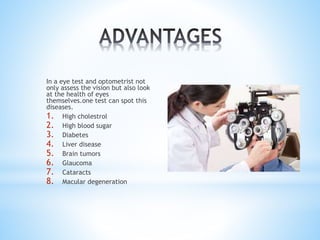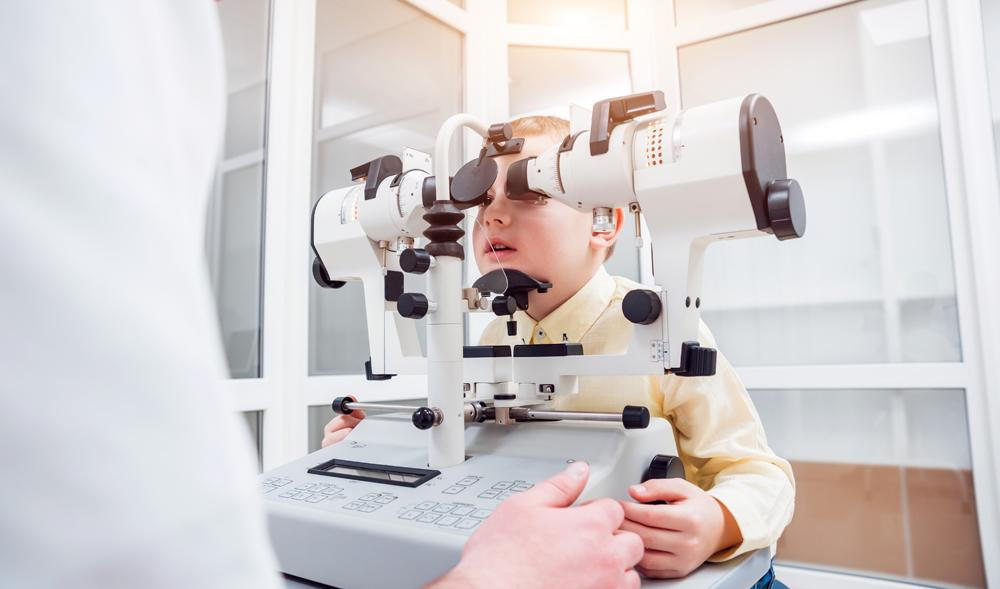Comprehending the Numerous Eye Conditions Dealt With by Specialized Eye Treatment Professionals
In the world of eye treatment, specialized specialists play a vital role in diagnosing and treating a large array of eye conditions. From common refractive errors that influence vision clearness to age-related conditions that position challenges as we age, the knowledge of these professionals prolongs to handling vision-threatening conditions and detailed corneal problems. The intricacies of neurological eye conditions existing distinct difficulties that demand specialized care. As we start this expedition of the various eye problems attended to by specialized eye care specialists, it becomes evident that the elaborate web of ocular wellness holds a myriad of remarkable insights waiting to be uncovered.
Usual Refractive Errors
Refractive errors are typical aesthetic problems triggered by an imperfection in the eye's capability to appropriately concentrate light, resulting in obscured vision. Astigmatism is identified by an irregularly designed cornea, resulting in distorted or obscured vision at all ranges. Presbyopia is an age-related condition where the lens loses its versatility, making it challenging to focus on close items.
These refractive mistakes can be dealt with through various techniques, consisting of glasses, call lenses, or refractive surgical treatment. Eye care professionals play an essential role in detecting and handling refractive errors to help people accomplish more clear vision and improve their lifestyle.
Age-Related Eye Problems
As people age, their eyes might be at risk to a selection of conditions past refractive mistakes that can influence their vision and overall eye wellness. Age-related eye conditions prevail and can dramatically affect the lifestyle for older grownups. Among the most prevalent age-related eye problems is age-related macular degeneration (AMD), a condition that causes central vision loss and can make tasks like reading and driving tough. refractive surgeries in al. Cataracts, an additional typical condition amongst older people, trigger clouding of the eye's all-natural lens, leading to obscured vision. Glaucoma, defined by damages to the optic nerve, is likewise more prevalent with age and can result in peripheral vision loss or loss of sight if left untreated. Furthermore, presbyopia, a problem where the eye's lens loses adaptability, is a natural part of aging and causes trouble concentrating on close objects. Normal eye examinations with specialized eye treatment experts are crucial for very early discovery and management of these age-related eye problems to protect vision and keep ocular wellness as people age.
Vision-Threatening Illness
Vision-threatening diseases include a variety of major eye conditions that have the possible to dramatically affect a person's eyesight and general visual feature. These conditions position a threat of permanent vision loss otherwise without delay diagnosed and dealt with by specialized eye treatment experts. Some usual vision-threatening illness include glaucoma, diabetic person retinopathy, age-related macular deterioration (AMD), and retinal detachment.
Glaucoma is a team of eye problems that harm the optic nerve, typically due to high intraocular stress, leading to peripheral vision loss and prospective blindness if left unattended. AMD is a progressive problem influencing the macula, leading to central vision loss.
Very early discovery, regular eye examinations, and prompt intervention are important in handling vision-threatening conditions to protect eyesight and preserve high quality of life. Specialized eye care professionals play an essential duty in diagnosing, treating, and managing these problems to stop irreversible vision loss.

Corneal Problems
Corneal conditions include a spectrum of conditions that affect the transparent front part of the eye, known as the cornea. Therapy for corneal conditions differs depending on the specific condition yet may include drugs, call lenses, or in serious situations, corneal transplants. Regular eye exams are important for very early detection More Help and management of corneal disorders to maintain vision and eye health and wellness.
Neurological Eye Problems
Neurological eye conditions include problems that affect the connection in between the eyes and the brain, influencing aesthetic handling and general eye function. These problems can materialize in different means, affecting vision, eye activities, and even the sychronisation in between the eyes. One common neurological eye problem is optic neuritis, identified by swelling of the optic nerve resulting in vision loss, shade desaturation, and discomfort with eye movement.
One more substantial condition is nystagmus, where the eyes make repeated, uncontrolled activities, influencing aesthetic skill and depth understanding. Furthermore, conditions like amblyopia, typically referred to as "lazy eye," arise from uncommon aesthetic advancement in very early childhood, bring about lowered vision in one eye.
Neurological eye problems require customized treatment from specialists like neuro-ophthalmologists that have proficiency in both neurology and ophthalmology. Medical diagnosis commonly includes a comprehensive eye exam, imaging research studies, and collaboration with specialists to deal with the underlying neurological issues influencing the aesthetic system. Treatment strategies can include medication, vision treatment, or in severe instances, surgical treatments to manage these Full Report intricate conditions properly.

Verdict
To conclude, specialized eye treatment experts treat a vast array of eye conditions, including usual Recommended Site refractive mistakes, age-related eye problems, vision-threatening illness, corneal conditions, and neurological eye conditions - refractive surgeries in al. By recognizing these different conditions and seeking ideal therapy from eye treatment specialists, people can preserve optimal eye wellness and vision. It is essential to prioritize normal eye assessments and comply with recommended treatment strategies to protect and protect one's vision for the future